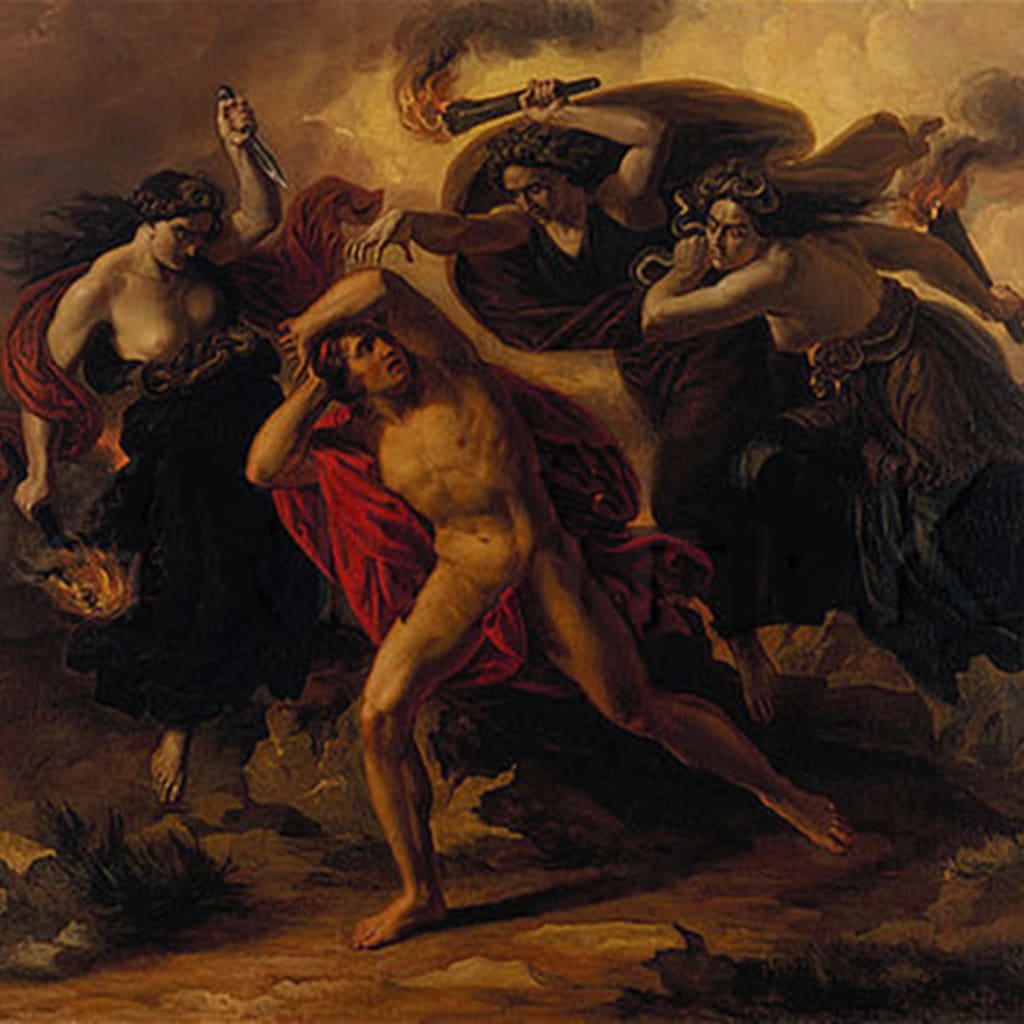The Furies: A Modern Antagonist from the Past
How Ancient Drama Continues to Inspire

Strong female characters have become a desirable aspect for writers of all styles. The direct stereotype of damsel-in-distress appeals to audiences as it shows how women are so much more than what they've previously been portrayed as in society. All female films, female directors, female writers and female producers are becoming more common in our day, alongside such modern phenomena as the #MeToo movement (intended not just for women, of course) have goaded us into thinking that female lead theatre and film is the result of modern thinking. However, I believe that the inclusion of strong females in the arts industry goes back much further than most realise: to the Ancient Greeks. Not only did strong women like Sappho make the arts their own, but the Furies were written as the powerful main antagonists of The Eumenides. The final installment in the only ancient trilogy to still exist, The Oresteia by Aeschylus.
As a classicist currently studying at university, not many subjects peak my interest quite as Greek drama. So many origins of Western society can be seen in these stories, written thousands of years ago. In particular the characters of Clytemnestra and the Furies. They are used as main antagonists, but to me, don't come across as inherently evil. Clytemnestra had her daughter sacrificed by her husband, and then the same husband brought home a younger woman to replace her with. She has clear motives to kill Agamemnon and can almost seek forgiveness, as so much of her life had been taken in such a short amount of time by one person. The one person who was supposed to love and adore her. In the original text, the Furies are always presented as grotesque and gruesome, due to the fact that they're the old gods and as they are no longer prayed to, they have deteriorated. Personally, I feel the grotesque presentation portrays their mistreatment and how they were forgotten so quickly by those who used to adore and dedicate their lives to them. In their mistreatment, I see these characters finding similarities in each other and being connected in a deep, emotional way is difficult to find in other ancient plays.
One of the most interesting things about the Furies is that they completely defy the usual role for a chorus in the typical style of Ancient Greek Drama. They are given unique personalities, they all speak and display different characteristics as well as being a driving force behind the story of Eumenides. Generally, an ancient chorus only has one speaking member, the main chorus member. They simply commentate on the events taking place and act more like one character, rather than a group made up of several characters, like the Furies do.
The Furies are clearly powerful, as old gods, and it was a choice to give them this power and allow this group of women to break the mould of chorus'. As far as we know, nothing like this was previously attempted by an ancient playwright, which makes the fact that it's a group of women staggering, especially as it's a group of old gods who don't follow the usual conventions of ancient women.
The current focus on females in the arts is incredible, but the way women are running things on their own reminds me of powerful women that were far and few between in ancient times. The ancient world may not have been kind to women, but they made a statement in their own way; they made history as the most iconic and original chorus. Perhaps the individual lines given to the chorus was a call for the voices of women to be heard? I guess we'll never know. The one thing we do know is that girl power has been around for thousands of years, and won't be going anywhere soon.
About the Creator
Stephanie MacLeod
Classicist by nature. Flapper at heart.






Comments
There are no comments for this story
Be the first to respond and start the conversation.